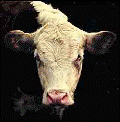Animal Science, Department of

Department of Animal Science: Dissertations, Theses, and Student Research
First Advisor
Mary E. Drewnoski
Date of this Version
12-2023
Document Type
Thesis
Citation
A thesis presented to the faculty of the Graduate College at the University of Nebraska in partial fulfillment of requirements for the degree of Master of Science
Major: Animal Science
Under the supervision of Professor Mary E. Drewnoski
Lincoln, Nebraska, December 2023
Abstract
Two experiments were conducted to determine the correlation of corn residue feed value and utilization on cow performance and potential grazing strategies. A qualitative observation of corn residue grazing by 13 cattle herds across Nebraska was conducted over two years. Based on producer reported grain yields and stocking rates, it was found that these producers were generally not as aggressive as the recommended 1.2 animal unit months (AUM) for each 6,280 kg/ha (100 U.S. bushels/acre) of harvested grain. They stocked 17 to 101% of the recommendation and on average used 63% of the carrying capacity. Across herds, average body condition score did not change throughout the grazing season, but a wide range in cow body condition score changes from -0.4 to + 0.6 was observed. On average, the utilization of husk was 71% compared to just 42% of residue as a whole.
A corn hybrid experiment evaluated the effects of corn grain yield on resulting quantity and quality of corn residue. As corn grain yield increased, the amount of grain relative to whole plant biomass (harvest index) increased, indicating less total residue produced per kilogram of corn grain produced. Additionally, the quality of husk and leaf declined as grain yield increased. The average amount of digestible organic matter (DOM) from leaf plus husk was 3.6 kg/25.4 kg of grain (1 U.S. bushel) and ranged from 2.5 to 5.8 kg. Therefore, the concentration of nutrients in corn residue declined as grain yield increased, meaning higher yielding corn had lower quality residue. Impacts of this decline in diet quality on cow performance should be further evaluated.
Advisor: Mary E. Drewnoski


Comments
Copyright 2023, Kaylee E. Wheeler